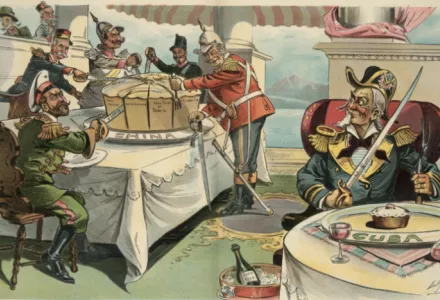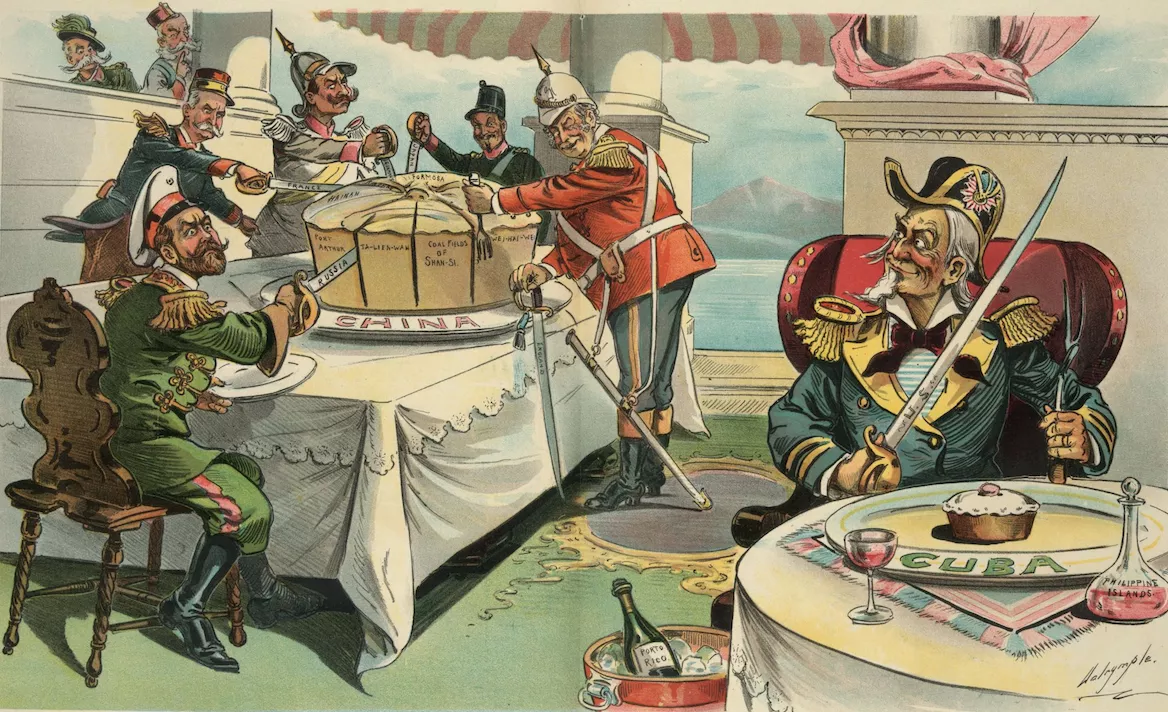Speaker: Ben Rhode, Ernest May Fellow in History & Policy, International Security Program
In the years around 1900, it was clear to most observers that a startling disparity of wealth and power existed not only between European states and much of the rest of the world, a substantial proportion of which had already fallen under their control, but also within Europe itself. At a time when the myriad causes of national and imperial decline were the subject of deep interest, the worldwide significance of the Spanish-American War (1898) was noted immediately by its contemporaries. The war marked the emergence of the United States as a global power and the end of the once-glorious Spanish Empire.
British Prime Minister Lord Salisbury, speaking shortly after a U.S. naval victory over Spain, remarked that the world could be divided into "living" and "dying" nations, and that the former were bound to "encroach on the territory" of the latter. Many observers understood "dying nations" to refer not only to non-European polities such as the Chinese or Ottoman empires, but perhaps also to declining European states.
This seminar will examine British diplomatic perceptions of Spain's defeat in 1898. It will explore British reactions to Spain's bitterness over being considered a "dying nation" and the supposedly close U.S.-UK relationship. It will discuss British concerns that Spain might fall under the influence of hostile states and that Spanish retaliatory actions could pose a strategic threat to the British Empire. In doing so, it will investigate understandings of national power, influence, and diplomacy at the fin de siècle.
Please join us! Coffee and tea provided. Everyone is welcome, but admittance will be on a first come–first served basis.




